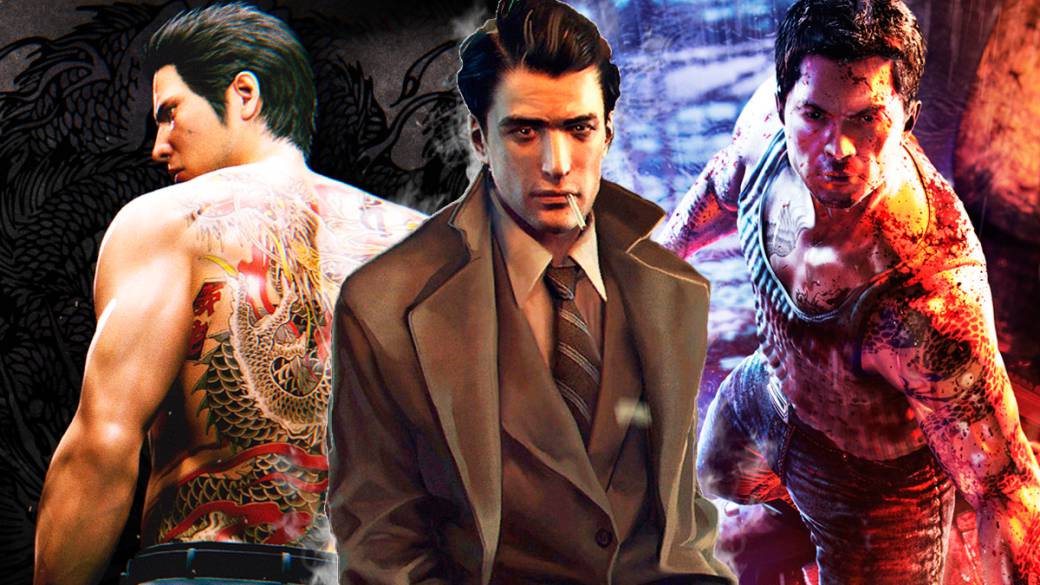
Mafiosi have been the protagonists of novels and movies for years, but they also have their place in video games.
Power is what you have, a magnetic pull, a sweet aftertaste that flies flies around you. Everyone wants their slice of cake, but the cake can only be broken into a few pieces. Some devour it with relish, making it clear that they are the ones who chew the sweet between their teeth; others prefer to disguise it, keeping appearances from the shadows, although they crush their portion with the same impetus. Be that as it may, in the underworld, organized crime decides the fate of many people. This reality has been reflected in the cinema, in television fiction and in novels. And what happens to video games?
The mafia theme has appeared in digital entertainment almost from the beginning. Some of the productions were born in the heat of its film version, such as Los Intocables, a product launched in 1989 for systems such as ZX Spectrum, Amstrad CPC, Commodore 64, NES, etc. A few years earlier, in 1986, Igelsoft published Mafia in Commodore 64, a game starring several criminals who are fighting to gain control of Chicago, a city dominated by crime.
A walk through the twists and turns of the classic realizes that the theme never went out of style. The mob has left its trail of blood and its crimson trail can be followed to the current video game, although it has not always been inspired by reality (titles based on comics introduce organized crime in their plots). The number of video games is huge, so this text will focus your attention on some contemporary sagas that have characterized different mafia groups.
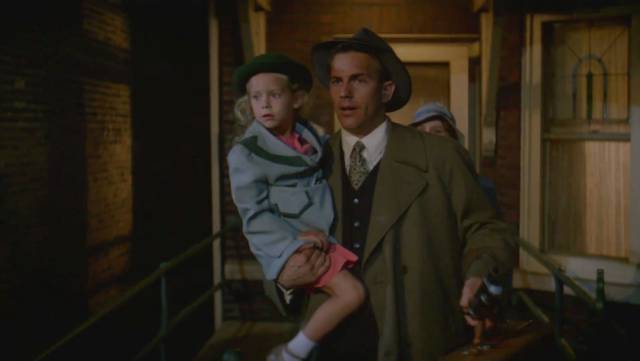 A scene from the movie The Untouchables.
A scene from the movie The Untouchables.
Universal features
Every human society is articulated around rules, a series of laws that mark a code of conduct to follow. But the saying already says it, made the law, made the trap. And organized crime operates in this muddy and elusive terrain, a group of groups that know no borders, but share a series of very specific general characteristics. In The History of Organized Crime, by Agustín Celis Sánchez, some of these elements are outlined. Among them is the fact that these communities do not usually move for ideological values. Furthermore, "they have a hierarchical structure, at the same time organized and flexible, designed to last over time."
These organizations tend to be restrictive towards their members. "Historically, they have resorted to ethnic characteristics when choosing their personnel", although in recent times they have also opted "for professional requirements". All of them share that they obtain their profits from activities outside the law, sometimes camouflaged in legitimate businesses. "They use violence and intimidation for their purposes, but also to enforce internal rules among their relatives, friends or associates." Its influence extends through the power centers like tentacles. In this way, they establish "lasting links with figures from the political, administrative and financial spheres, as well as in the mass media and in public entertainment."
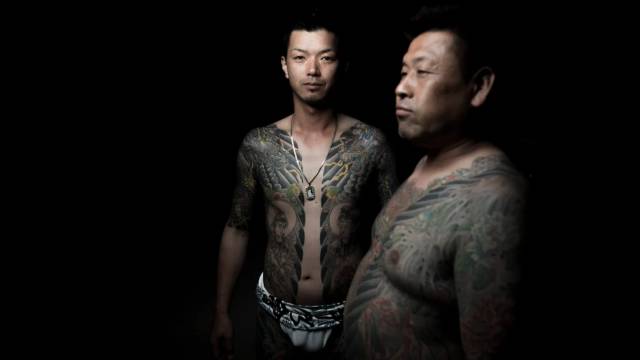 Members of the Japanese mafia. Photo: FRED DUFOUR / AFP / Getty
Members of the Japanese mafia. Photo: FRED DUFOUR / AFP / Getty
These activities take place in the shadows, where "the supreme ideology of criminal organizations prevails: the accumulation of power and wealth without limits." To do this, they weave a parallel network "to that of the official institutions of the different states", to those who loot "in a systematic way", since they intervene in the economy and suffocate "the civil society", corrupting the political class.
Drawing the schematics of the origin of organized crime is beyond the scope of this article. Still, the mafia is not a reality today, as it has its roots in the remote past. Paul Veyne, a specialist in Ancient Rome, defines the imperial structure as a great mafia, since the patronage system favored this type of practice. In the United States, it dates back to the 19th century, as the Crime Museum publishes on its website: “Notorious groups like the Forty Thieves in New York were made up of hundreds of immigrants who came together to ensure their own protection and financial benefits. These people felt that they could trust each other and conceived of organized crime as a method of improving their lives and finding protection from other corrupt gangs and police officers. "
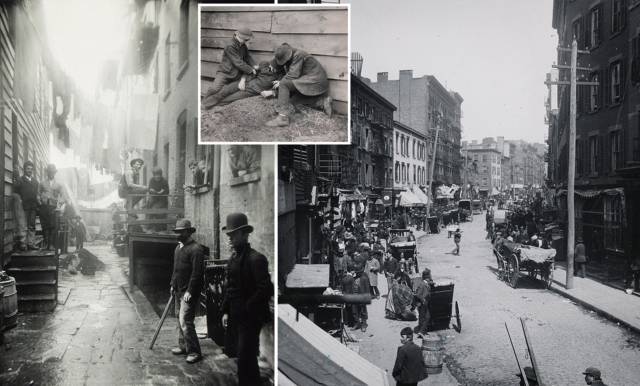 Low funds in the United States. Photo: Jacob Riis
Low funds in the United States. Photo: Jacob Riis
The 20th century was a transformation for Japan. The times of the samurai came to an end and the old model ended definitively with the end of the Second World War. The yakuza, the Japanese mafia, did not disappear with the fall of the Japanese empire. Its beginnings in the Edo Period (1603-1868) span more than two centuries and merge with the ancient medieval system. The image that is projected in fiction, however, is a bit whimsical. At least that's what veteran yakuza Eiji Ijichi claimed in Memoirs of a Yakuza, Junichi Saga's book:
"In movies and novels, yakuza are always looking for a sword or a gun, but that's bullshit. Professionals were different in those days. Their job, the job they depended on for a living, was rolling the dice and giving customers a good time, which means it was really rare for them to fight. There were bosses who did not always agree, of course, but if they had started to quarrel because they were not getting along, the police would have arrested them, "with the consequent damage to their business. "In a way, we can say that we were more welcoming than ordinary people."
Below, we select five contemporary sagas or video games that embrace this theme in one way or another:
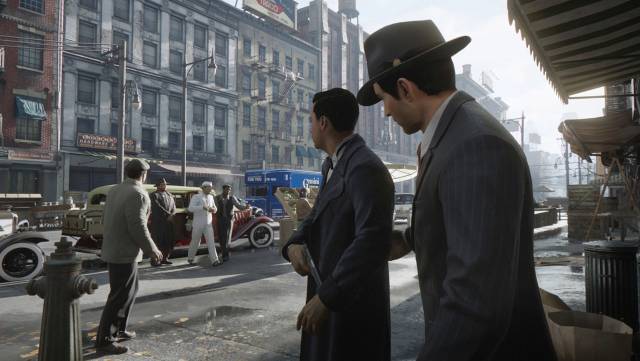 Mafia remake
Mafia remake
Grand Thef Auto, synonymous with best sellers
The GTA story begins before Rockstar North was called Rockstar North. The development studio, then known as DMA Design Limited, was already a developer with a lot of career behind it. David Jones and Mike Dailly were the original parents of a saga that today sells millions and millions of units. Conceived as a video game with a zenith view, the franchise turned upside down when moving to three dimensions, with the triumphal entry of the Houser brothers. The video game revolutionized the video game industry thanks to the construction of its world and its sandbox approach, which would continue to progress in the years to come.
Grand Theft Auto has always been in the eye of the storm. Especially years ago, when video games were less considered than in the most current era, controversy surrounded him since its first installment. His often satirical depiction of the underworld is replete with characters very characteristic of the gangster world. In addition, the freedom that it boasts, which allows to commit all kinds of crimes and misdeeds, introduces an endless number of activities that did not go unnoticed by the most scandalized voices. That search for controversy was, in a way, intentional. From the first installment, the team led by David Jones hired a PR with the aim of encouraging that rebellious content a bit.
The commercial results of GTA V have not stopped surprising. In the same week that the Epic Games Store gave away the video game in its digital store, Take-Two Interactive, parent company of Rockstar Games, revealed that its video game has already sold 130 million copies. An important part of that triumph is due to GTA Online, a product that is still very much alive and with regular updates. The future? Rockstar Games does not currently provide any leads. The North American company always took time to teach and launch its products.
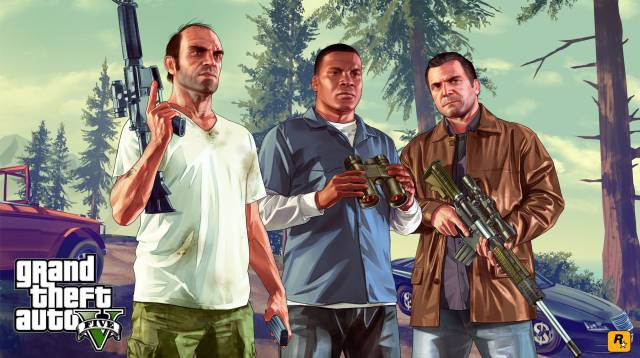 GTA V.
GTA V.
Mafia, three different times in the United States
Following the release of Mafia 3, a game developed by Hangar 13 and published by 2K Games, both the specialized press and the players agreed that the title was behind its two previous installments. Since its launch in October 2016 for PS4, Xbox One and PC, the saga has remained silent … until now. Surprisingly, the publisher has announced the Mafia Trilogy, a compilation of the three main video games, although they can also be purchased separately. Mafia 2 and Mafia 3: Definitive Edition are remasters, while the new version of the first installment is a complete remake, not only at the graphic level, since it will add new lines of dialogue and unpublished sequences.
At Mafia, we travel to the 1930s in the United States, during the dry law. The protagonist lives in Lost Heaven, Illinois, a place where gangsters thrive and kill each other. Tommy Angelo may be a taxi driver, but he soon discovers the advantages of joining the Salieri family. Little by little, it will penetrate the cobwebs of this criminal world.
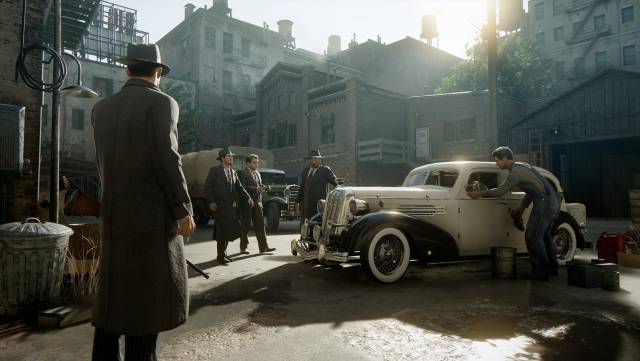 Another screenshot from Mafia: Definitive Edition.
Another screenshot from Mafia: Definitive Edition.
Mafia 2 advances in time and changes location, but not country. We are in Empire Bay, New York. Time has advanced and we are fully entering the 1940s and 1950s. Vito Scaletta fought in World War II and was awarded a war hero. Now, however, he is one of the members of the mob. He opted for that path to pay off his father's debts, but his ambition leads him to try to move up the hierarchy with the help of his friend Joe.
Lincoln Clay has in common with Vito his past as a war veteran, despite the fact that they fought at different times. Clay fought in the Vietnam War for years, but in 1968, already back, his intention is to abandon the paths of crime that he had followed in the past. "The family is not those you were born with, but those you are willing to die for." That is the motto of the protagonist, who will soon be involved in a new dispute when the Italian mafia executes his plan and destroys the black mafia. Blind with rage, the protagonist resurfaces in search of those responsible for the heinous crime.
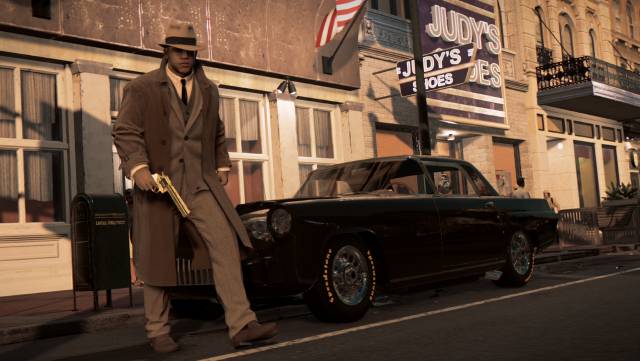 Clay, protagonist of Mafia 3.
Clay, protagonist of Mafia 3.
Sleeping Dogs, in the heart of the Chinese mafia
For better or for worse, the universality of the human being is not lost with culture. Some aspects are nuanced, others change depending on the social laws that prevail in each of the societies. But where there is law, there are people willing to break it; where there is power, there is a desire to knead it. Violence is another characteristic that appears in one way or another in human communities. Apparently, the mafia and crime are also a burden that appears in any culture. Sleeping Dogs, developed by United From Games and published by Square Enix, is set in the city of Hong Kong. This sandbox provides the player with a combat system based on martial arts, through a title that initially came out on PlayStation 3, Xbox 360 and PC, but was later adapted to the new generation through its Definitive Edition.
On the neon streets of the old British colony, the shops are buzzing with activity. Still, under that facade of exotic colors, money moves at lightning speed. The triads operate with impunity and their bosses curl up at points of influence with the aim of continuing their illegal activities. Wei Shen, the protagonist of Sleeping Dogs, is not exactly a gangster, although he will have to pretend that he is. This is an undercover cop whose sole goal is to destroy triads from within. In his condition of incognito, he must participate in criminal operations that will allow him to ascend the command ladder. However, he will try at all costs so that his true identity does not come to light.
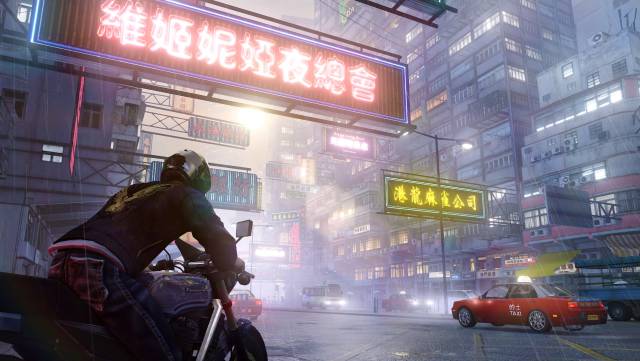 Gangsters under the neon lights of Hong Kong.
Gangsters under the neon lights of Hong Kong.
Disco Elysium, the triumph of the independent role
At Disco Elysium, there is no Italian or Russian mafia. Nor does the yakuza or the fearsome triads operate, since we are dealing with a video game set in a fictional world. What is not lacking are gangsters or gangsters. The title developed by ZA / UM was one of the big surprises of 2019, an old-school role-playing title (graphics with isometric view), albeit without a combat system. Its development is based on narrative and dialogue, a system that has penetrated both critics and the public and that has earned it laurels in some prestigious video game awards. The work is not yet available in Spanish, but the official translation of Clan Dlan will be published in the coming months.
Revachol is a city full of contrasts. Martinaise, the poverty district, remains at the mercy of crime and corruption. The communist revolution failed and the effects are still in effect. The Coalition, a group of capitalist countries, was able to slow the revolutionary advance, and since then, has exercised strong control over the economy. The protagonist is an agent of the Revachol Citizen Militia, a semi-professional body charged with maintaining order. The story begins with the policeman who manages the player, who must investigate the murderer of a man and enter the underworld.
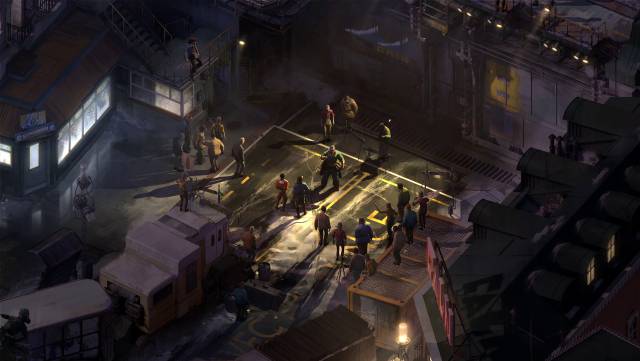 This is what the city looks like at Disco Elysium.
This is what the city looks like at Disco Elysium.
Yakuza, honor and money
SEGA captures the Japanese mafia in one of its star sagas. Since the launch of the first Yakuza on PlayStation 2, the Japanese company has published more than six video games from the main saga, as well as some spin-offs. The franchise is characterized by a mix between the serious tone of some themes and the overflowing humor in others. It is, of course, a fantastic and caricatured representation of the Japanese underworld, with an iconography that is based on reality, but is intertwined in its playful component. Walking the streets of Kamurocho (a fictional Kabukicho-inspired neighborhood) involves fighting all the thugs you stumble across.
The saga stars Kazuma Kiryu, an orphan who was adopted in childhood by one of the leaders of a yakuza family. His father never wanted the young man to continue on his way, although in the end he entered the world of crime and began a not too long journey within the mafia, because for various circumstances, he finally decided to leave his past as a gangster behind. All in all, his yesterday haunts him and he gives delivery, the man, already mature, continues to deal with the thugs of each clan, while managing to build a family of orphans. The seventh installment, Yakuza: Like a Dragon, dispenses with its usual protagonist to introduce Ichiban Kasuga. Its game system also varies, since SEGA has opted for turn-based combat instead of real-time fighting.
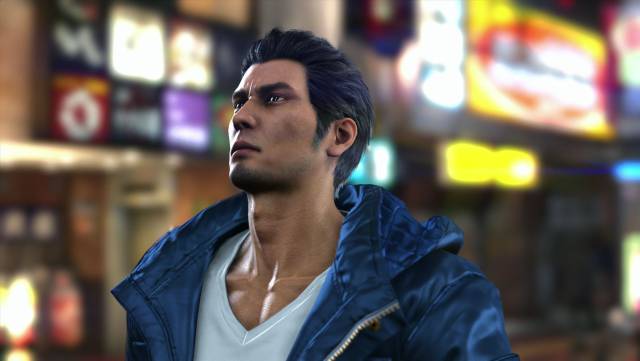 Kazuma Kiryu in Yakuza 6.
Kazuma Kiryu in Yakuza 6.

